05 June 2023
On 05 June, the European Union Rule of Law Mission in Kosovo (EULEX) organized the panel discussion “Enhancing the courts’ communication with the public and the media”, together with the NGO Center for Innovation and Development.
The panel discussion saw the participation of Albert Zogaj, Chair of the Kosovo Judicial Council, Antigona Uka-Lutfiu, Spokesperson for the Supreme Court, Naile Dema Selmani, Member of the Board of the Association of Journalists of Kosovo, Kreshnik Gashi, Editor/Author of the show “Justice in Kosovo”– Internews Kosova, and Andrej Bozhinovski, Doctoral Assistant at the Faculty of Law in Zagreb.
The Head of EULEX's Press and Public Information Office and Spokesperson, Ioanna Lachana, opened the event answering a striking question: “Why awareness of the work of the courts is important?”.
“It is important because without awareness, there can be no trust. Simply said: People cannot trust what they cannot understand. This is also the case with the judiciary,” Lachana said, explaining the importance of the role of the courts’ communication officers in helping citizens understand the work of the courts in an active and proactive way.
EULEX’s Spokesperson also presented some of the initiatives that the Mission has undertaken to bring Kosovo citizens closer to the rule-of-law, including awareness raising campaigns, moot courts, and study visits.
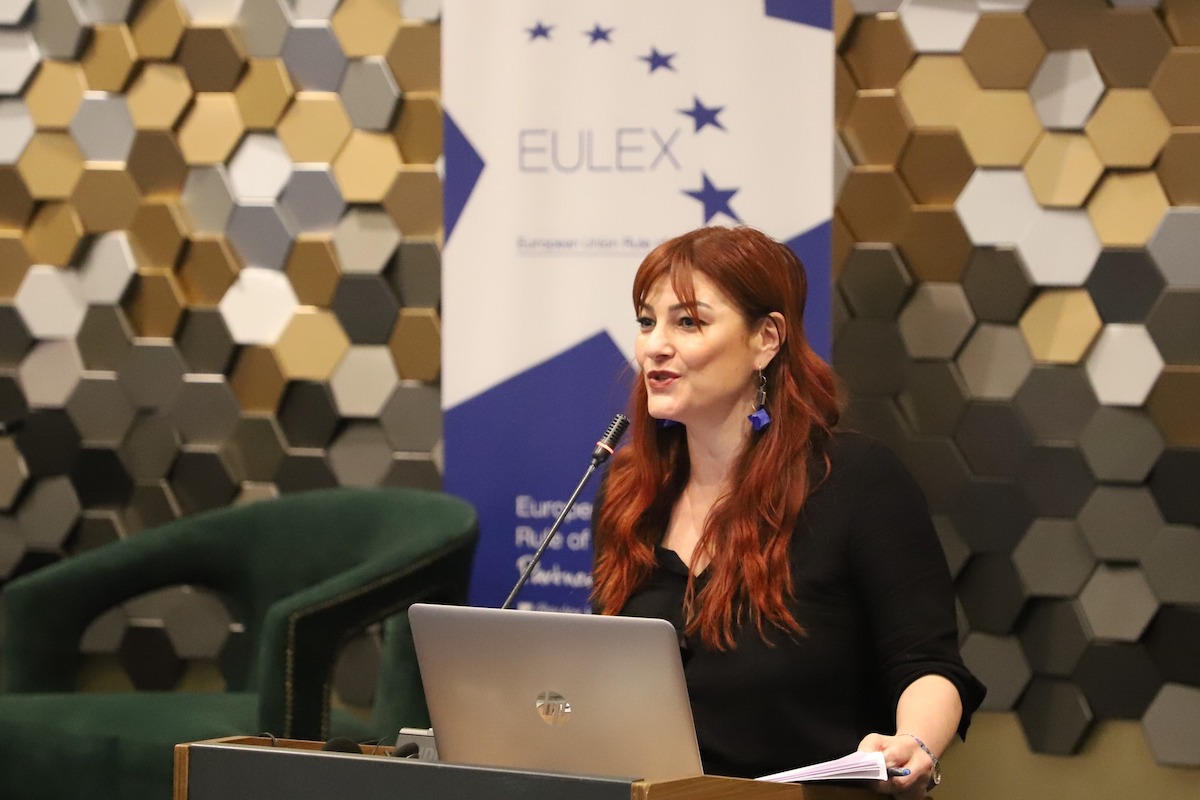
The discussion was prompted by the presentation of the Judicial-Media Council of North Macedonia, a non-formal platform for dialogue between judges and journalists, by Andrej Bozhinovski, former Project Coordinator of the Council.
Presenting the Council, Bozhinovski explained: “The objective of the Council is to build relationships between judges and journalists that would balance access to information with the protection of the presumption of innocence of the defendants, preventing sensationalism in media reporting on judicial cases, and protecting and promoting the interests of justice”. He highlighted how the Council successfully resulted in a change of mindset, improved transparency and dialogue, and eventually, in the courts having a voice.
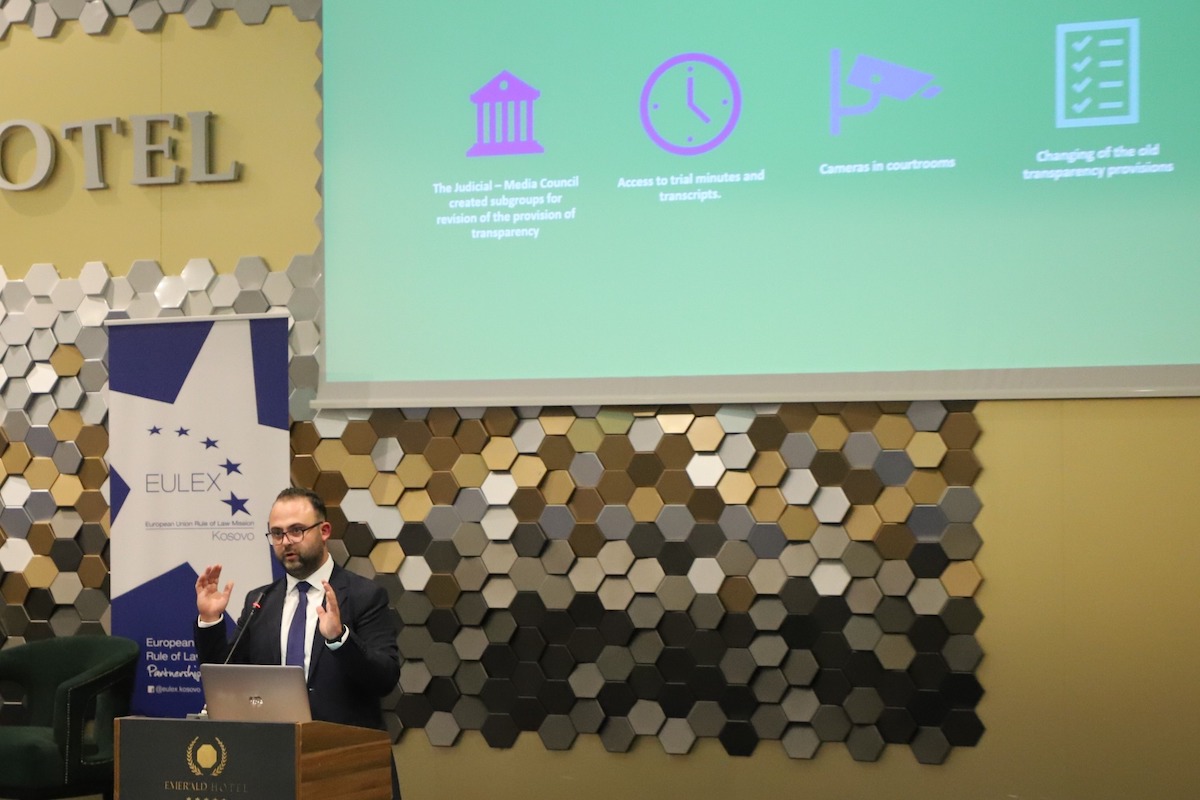
During the first part of the panel discussion, media representatives exchanged views on the status of judicial transparency in Kosovo from a public information perspective.
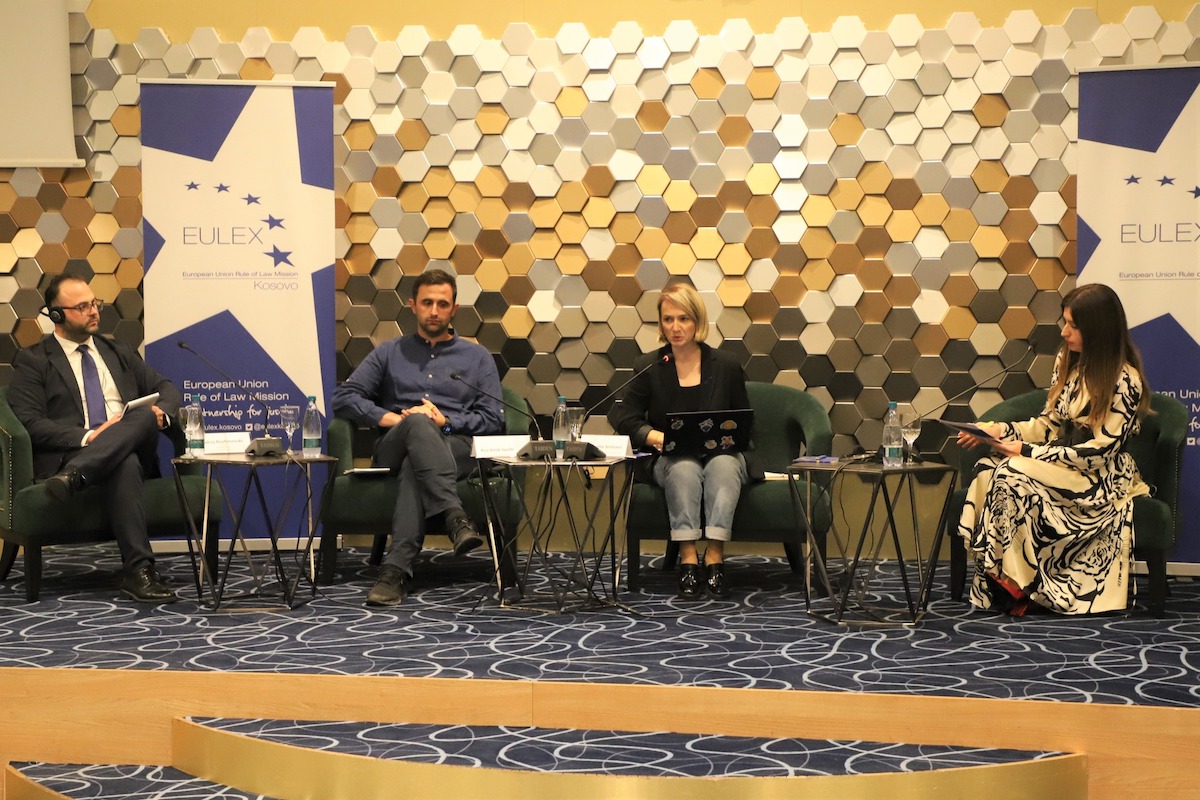
Naile Dema Selmani, Member of the Board of the Association of Journalists of Kosovo (AJK), stressed that one of the challenges faced by journalists is the limited number of spokespersons or communication personnel within the courts, resulting in delays in the replies. She highlighted the need to further strengthen the communication with the courts: “In order to improve communication with the courts, last year the AJK held a meeting with the Kosovo Judicial Council and the Kosovo Prosecutorial Council, and during the ensuing discussion an agreement was reached between the groups to give priority to journalists in cases where, for example, they were attacked," said Dema Selmani adding: "I believe the time has come to establish a platform for dialogue to enhance communication between journalists and justice institutions.”
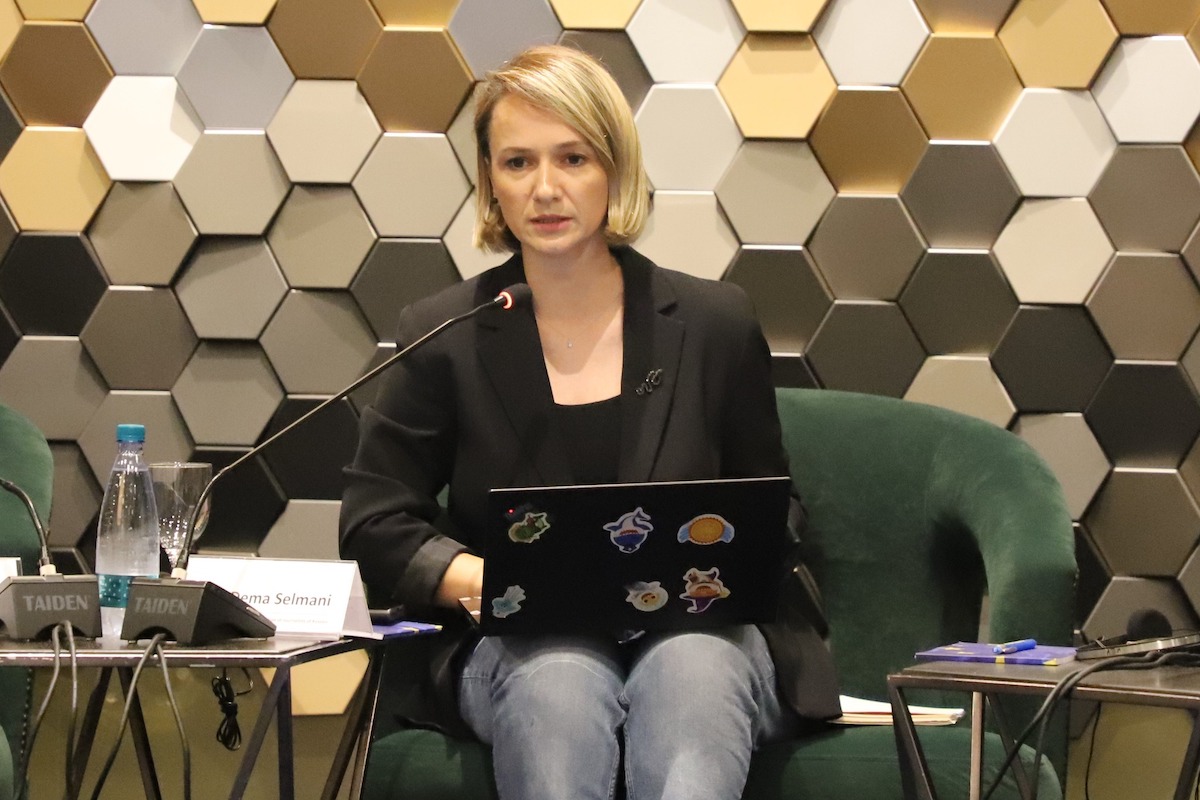
Positively commenting on the level of transparency within the Kosovo judicial system, journalist Kreshnik Gashi said: “I can say that there is a very positive approach in granting access to journalists. This system allows journalists to enter the courtrooms with cameras, record everything during the proceedings and continue to have full transparency about what happens in the courtrooms.”
Focusing on the actual challenges, Gashi pointed out the need to tackle the systemic issue of disinformation: “However, the main problem we have is with the primary element, which is the strategic approach of the justice system. Today, the system does not have an answer to tell us what is the main problem in communication with journalists. In fact, we have conducted a survey about the problems that come up due to disinformation, and the system still does not have any analysis on who is aiming to spread disinformation about the justice system,” he said.
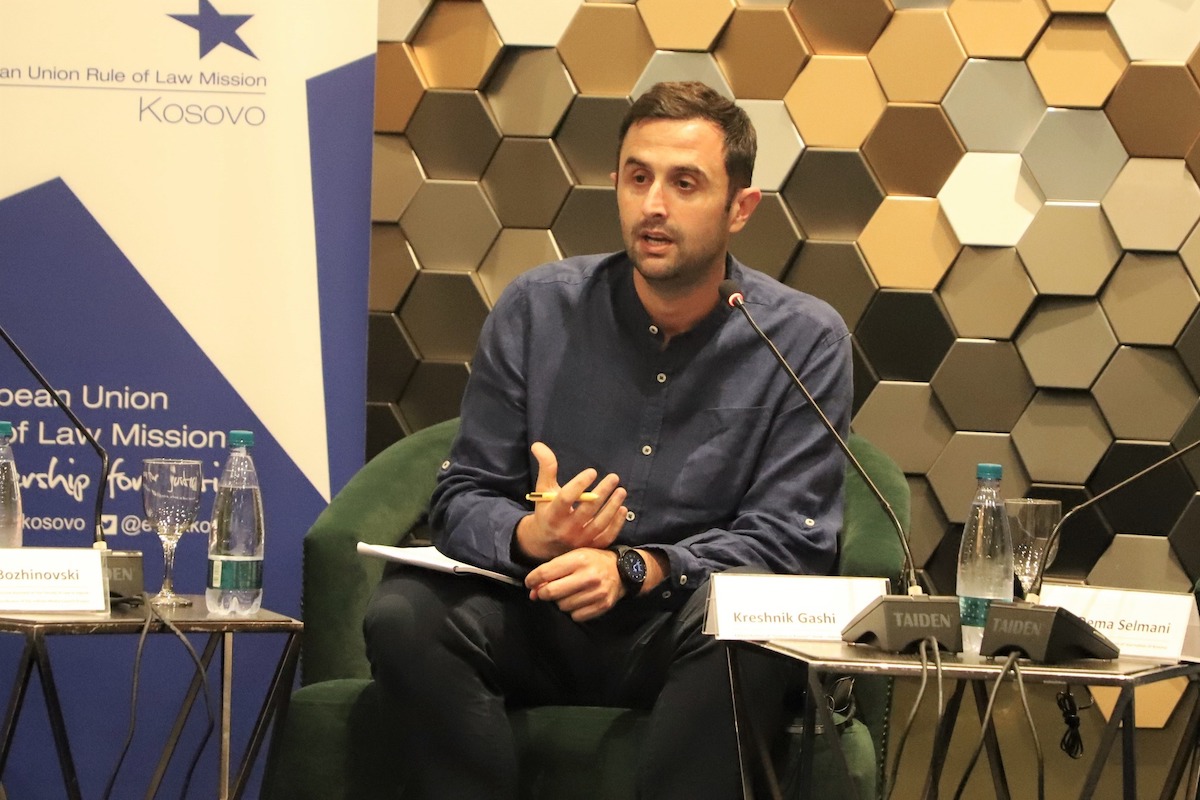
Some of these challenges were also highlighted during the second part of the panel discussion by Albert Zogaj, Chair of the Kosovo Judicial Council, and by Antigona Uka-Lutfiu, Spokesperson for the Supreme Court.
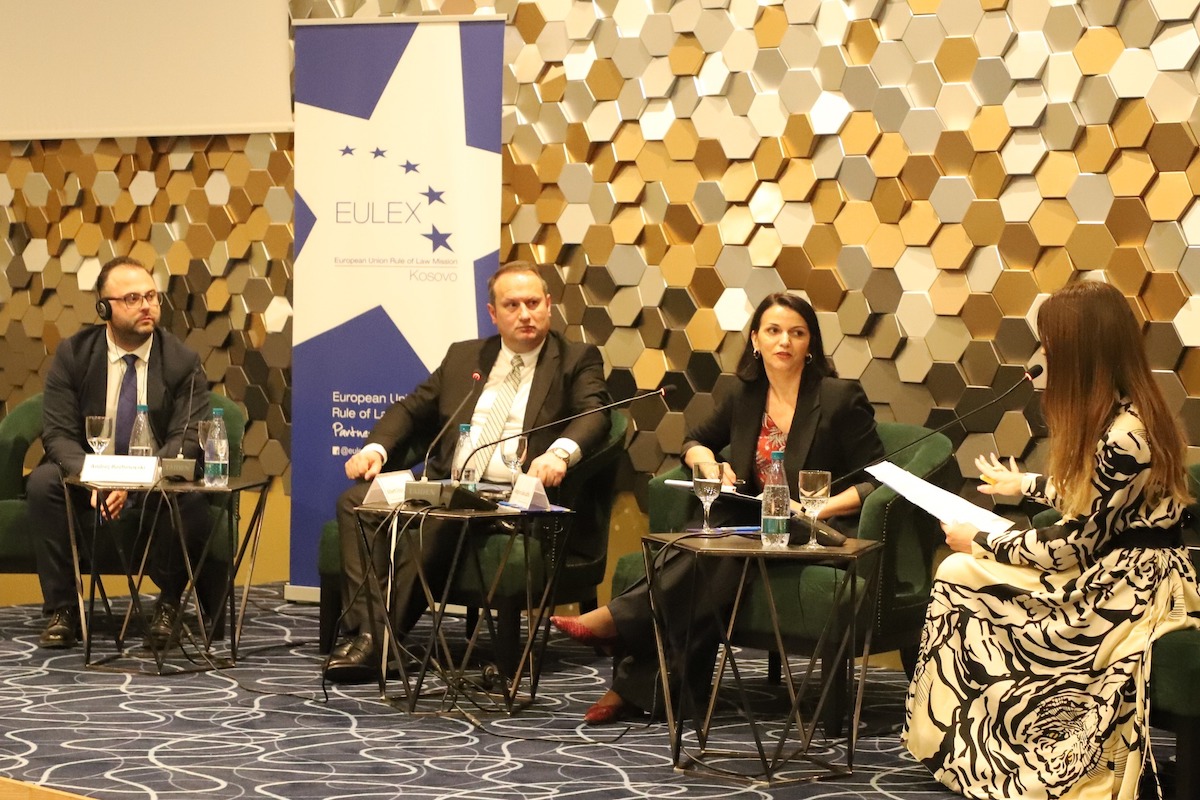
Recognizing the importance of ensuring a proactive and transparent communication approach to better inform the citizens, Zogaj said: “It would be good to develop communication skills in the initial training programme for judges, but also in the continuous one, because this would help presenting the work of the courts to the public, and also provide more correct and more accurate information to the public. We, as the Judicial Council, have definitely chosen to be transparent in all possible forms.”
Zogaj also stressed the necessity to find a balance between transparency and respect of confidentiality: “But, I should also emphasize that the work of the judiciary is a little more discrete, more closed, less avant-garde in the sense of publicity, and we would have to compare with other systems to find out what is the real benchmark, so how we should present the work of judiciary. And that's why I welcome communication with journalists and all organizations.”
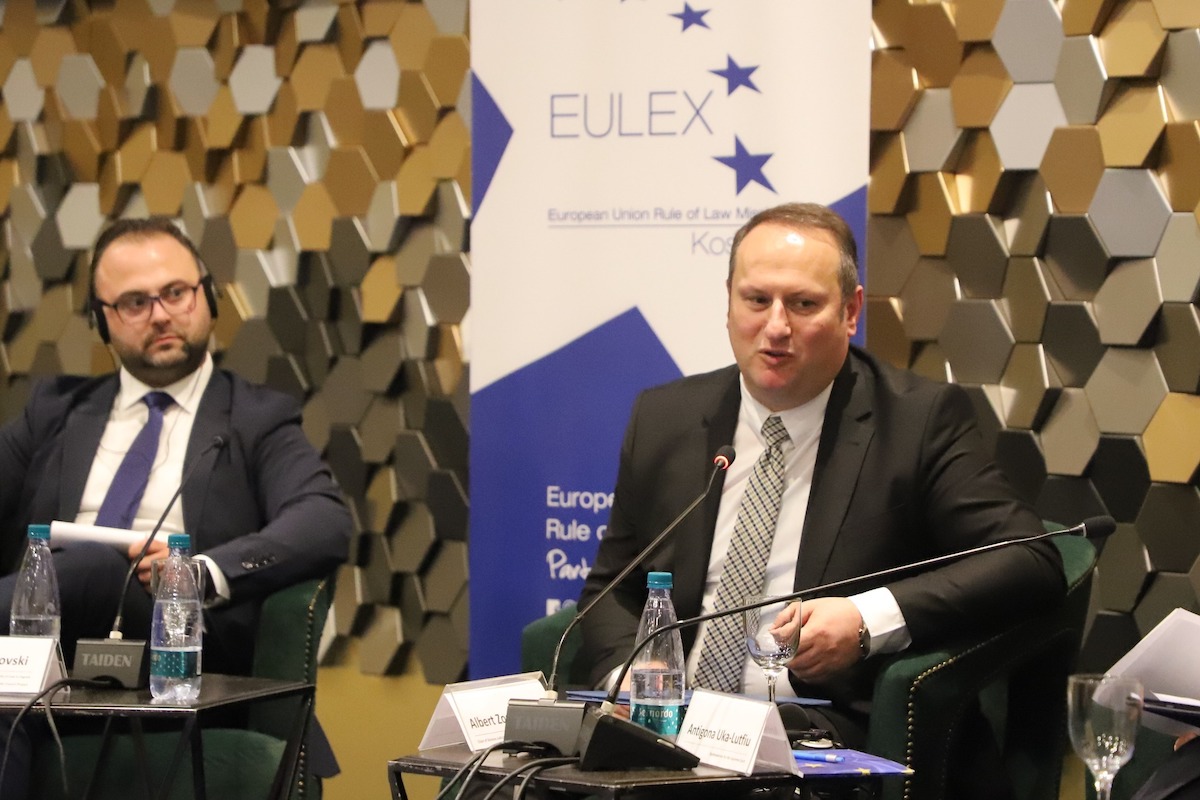
Antigona Uka-Lutfiu, Spokesperson for the Supreme Court, recalled the need to strengthen the public information capacity within the courts in order to deliver the right level of proactivity and transparency: “There is only one spokesperson in every court, who covers all activities in the area of communication. It has been very challenging because in addition to being responsible for communication, we also maintain websites, publish decisions, prepare press releases, communicate with the media, with the public, and maintain social media channels. Due to the large volume of tasks and responsibilities, we may not be as proactive as we would like.”
Uka-Lutfiu also pointed out that its is essential for court communicators to be properly trained in media relations and journalism: “On the other hand, I believe that the experience in journalism has taught us to make our press releases as easy to understand as possible in terms of language, but it has also made us aware of the aspect of timing, so that we respond within the fastest possible timeframe,” she said, sharing her personal professional experience.
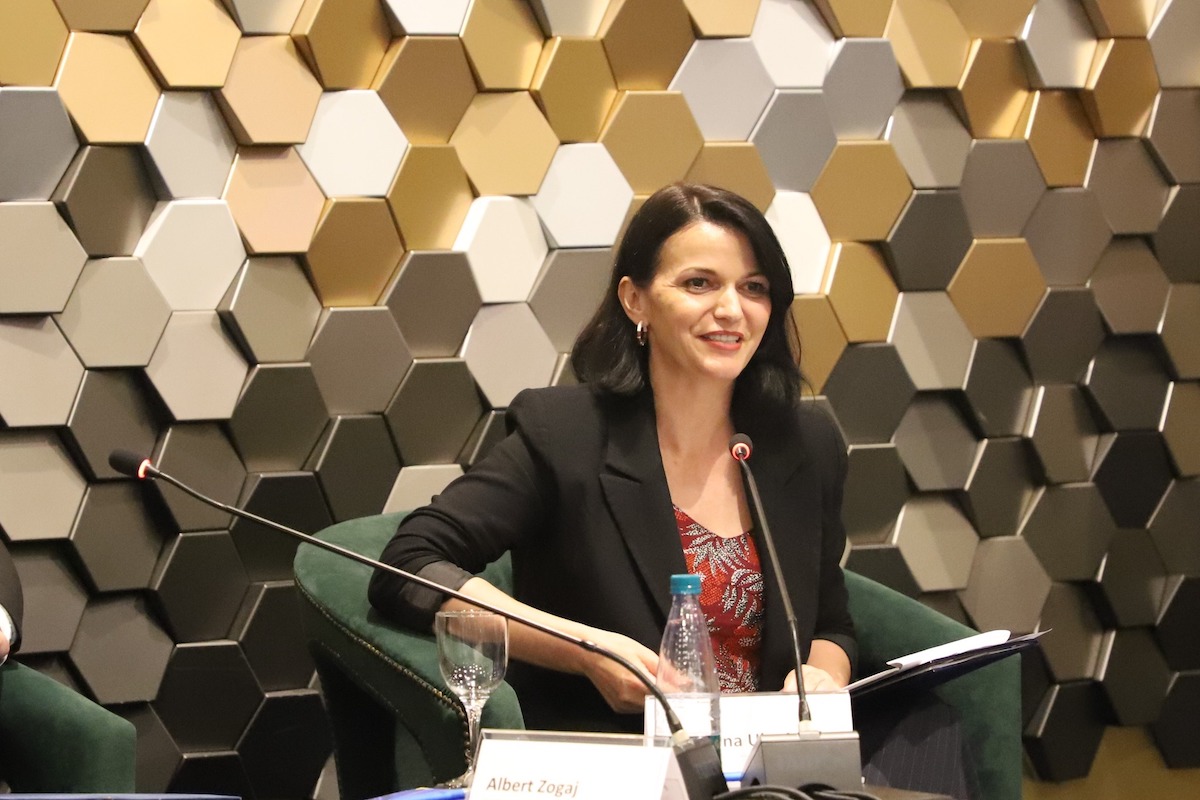
The panel discussion was part of EULEX’s small-scale project titled “Improving Transparency in Judicial Reporting”, which also included the production of a series of six video features on selected rule-of-law topics aimed at raising awareness among the public of the work of justice institutions in Kosovo.
Watch the full discussion at: https://www.facebook.com/watch/live/?extid=CL-UNK-UNK-UNK-IOS_GK0T-GK1C&mibextid=2Rb1fB&ref=watch_permalink&v=917564582661673